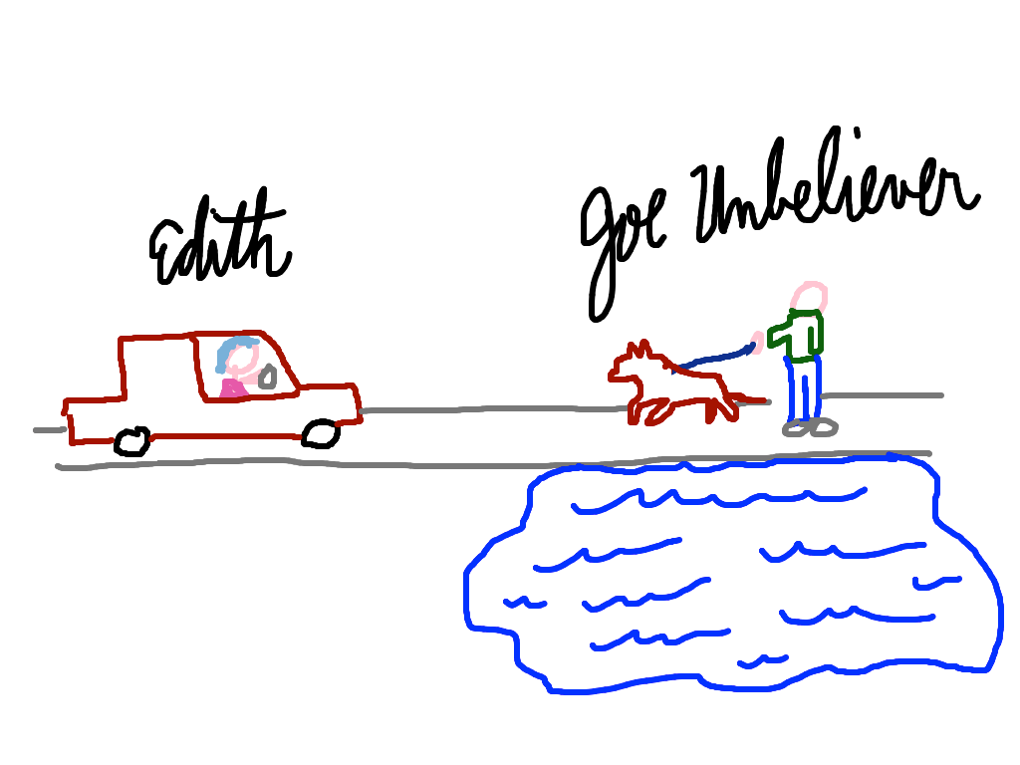When I teach the two kinds of righteousness (Don’t worry, we’ll get there), I usually draw the same picture on the board. It’s not a very good drawing from an artistic standpoint, but it seems to help the students. Here’s what it depicts.
Joe Unbeliever is walking down the road in the winter, with his dog, which usually ends up way out of proportion, even with practice. Down the road drives Edith, a sweet old lady on her way to church. The road is icy. On one side of the road is the church. On the other is a deep lake. Edith’s car slides, skids, plunges into the lake (for this there are excitedly drawn arrows). Joe Unbeliever jumps in the lake (another arrow, usually a different color, if I have enough markers), and saves Edith.
Great story, right? What’s the point? The point is the question I ask: Did Joe do a good work? I let them argue it for a while. But what’s the answer? Yes? No? The good news is you can’t go wrong. Both answers are correct.
When it comes to citizenship, to civic, or civil, righteousness, the righteousness of this realm, of the philosophers, Joe did a good work. We should give Joe a medal. We’re glad he saved Edith. The church is glad he saved Edith. Even God foreknew he would do it and didn’t stop him and indeed will now continue to use Edith, and Joe, for the temporal good of others. Joe did a good thing.
When it comes to divine righteousness, though, to the righteousness of faith, the righteousness that avails before God for salvation, Joe didn’t do a good work. Saving righteousness is passive righteousness. It’s received, not earned, done, worked out. It’s given, in Christ, through faith, by the gospel. Joe is a great guy, but he’s no saint, while every believer, even those who might have lacked his courage in the same situation, through the gift of faith, placed into the beggar’s hand, received (not even accepted in any active, snatching sense), are saints, not by works, but in Christ, by grace.
This is an important distinction for Christians to keep in mind. We want to be good citizens. We want good fellow citizens and pray for them. They are a blessing for our neighbors and for us in this life. Salvation, however, eternal life, comes only in one way, from Christ crucified for sinners, given to faith, the gift of God as well, received by grace, brought to us by the Means of Grace (Word and Sacrament). In remembering this distinction, we serve both the church, the state, ourselves, and our neighbors. We are prepared to appreciate good guys, to remember what makes saints, and to give thanks to God for both. God grant us the wisdom, the care, and the gospel focus to do just that.

